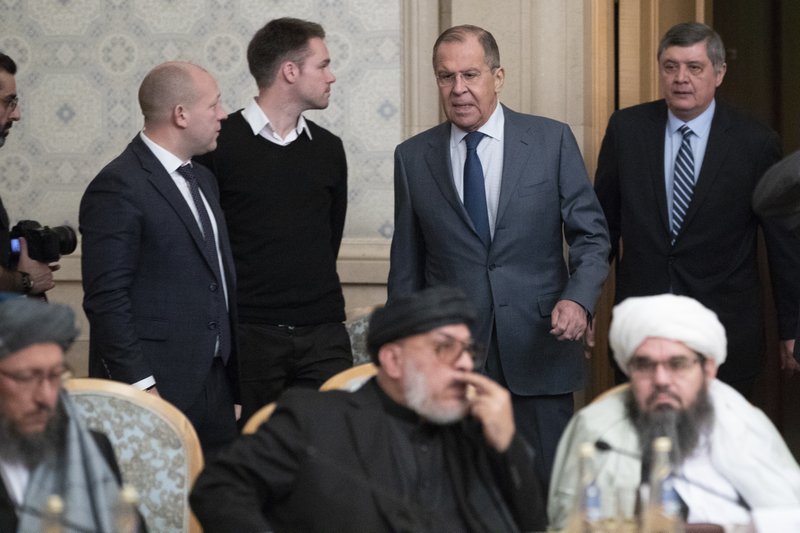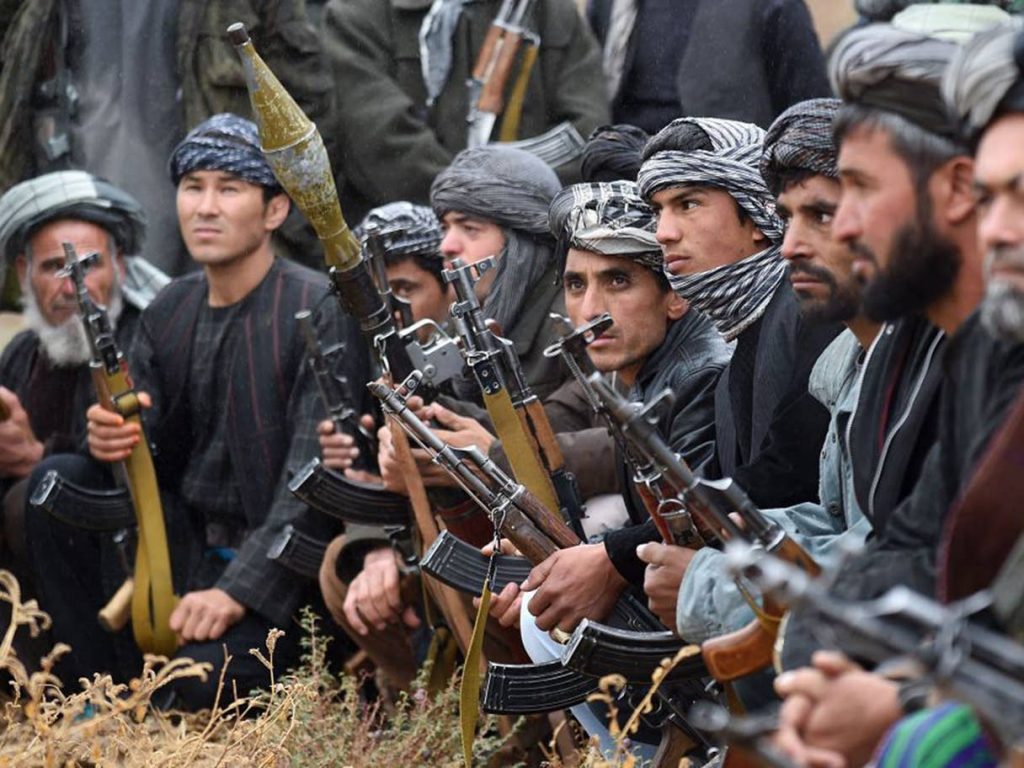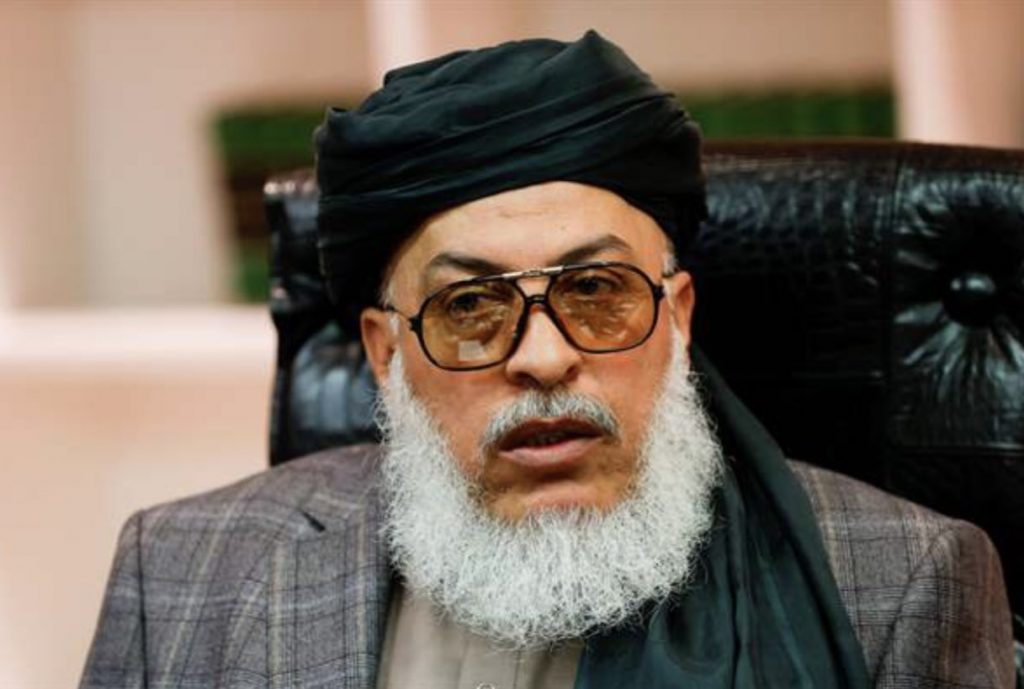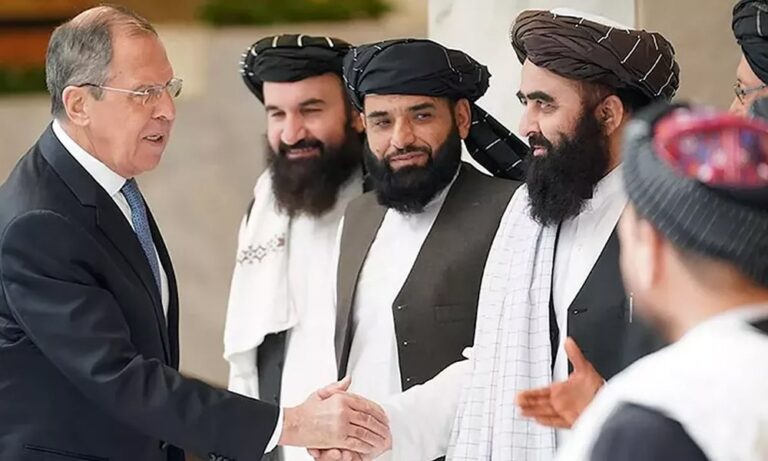Russia has recently undertaken several steps toward legitimizing the Taliban regime in Afghanistan:
Initiating Legal Processes to Delist the Taliban as a Terrorist Organization:
In March 2025, Russia’s Prosecutor General’s Office formally petitioned the Supreme Court to remove the Taliban from the nation’s list of terrorist organizations. The court has scheduled a hearing for April 17 to deliberate on this request
Despite the Taliban’s terrorist designation since 2003, Russia has hosted multiple diplomatic meetings with Taliban representatives, viewing engagement as essential for stabilizing Afghanistan and combating groups like ISIS In December 2024, Russia’s State Duma approved the first reading of a bill that would facilitate the removal of the Taliban from the list of banned terrorist organizations, marking a legislative move toward formal recognition.
President Vladimir Putin referred to the Taliban as a “trusted ally” in combating terrorism, indicating a significant shift in Russia’s official stance toward the group.
These actions reflect Russia’s strategic interest in engaging with the Taliban to enhance its influence in Central Asia and address regional security concerns.
Russia’s growing engagement with the Taliban regime in Afghanistan has raised significant geopolitical concerns. Despite the Taliban being designated as a terrorist organization in many countries, including Russia itself, Moscow has maintained diplomatic relations and provided economic and political support to the regime.
Several strategic and pragmatic factors drive Russia’s support for the Taliban:
- Security and Regional Stability – Russia fears that instability in Afghanistan could lead to the spread of extremism and terrorism into Central Asia, a region that Moscow considers within its sphere of influence. By engaging with the Taliban, Russia seeks to establish cooperative security arrangements that limit the influence of groups such as ISIS-K. Their relationship with the Taliban and Russia is complex and distinct from broader Russia-Taliban ties. Unlike the Taliban, which seeks national control of Afghanistan, ISIS-K aims for a global jihadist caliphate and views the Taliban as insufficiently extreme. Since 2015, ISIS-K has been responsible for deadly attacks against both the Taliban and civilians in Afghanistan. The Taliban have fought ISIS-K aggressively, making them an unlikely direct beneficiary of Russia-Taliban cooperation.
Russia sees ISIS-K as a security threat, particularly due to its ability to recruit from Central Asia. Russian intelligence has warned about ISIS-K’s plans to target Moscow and its allies in the region. This contrasts with Russia’s growing cooperation with the Taliban, which Moscow views as a stabilizing force (despite its extremist nature). While the U.S. opposes both the Taliban and ISIS-K, its counterterrorism focus on ISIS-K is more direct. The U.S. has conducted drone strikes and intelligence operations specifically targeting ISIS-K leaders. Russia-Taliban cooperation could complicate U.S. efforts by creating a security environment where counter-ISIS-K missions become harder to execute.
Russia and the Taliban could develop an intelligence-sharing mechanism against ISIS-K, further excluding the U.S. from counterterrorism operations.
This would mean that Russia, not the U.S., becomes the key foreign power dictating Afghanistan’s internal security policies.
- Russia sees ISIS-K as a security threat, particularly due to its ability to recruit from Central Asia.
Russia’s engagement with the Taliban weakens international efforts to isolate the group, potentially providing it with economic and military resources that could be used to destabilize the region.

More on this story: Russia’s weaponization of the Taliban
- The Taliban’s rule has allowed Afghanistan to become a potential safe haven for extremist groups. Russia’s support complicates efforts by the U.S. and EU to counter terrorist threats emanating from Afghanistan.
Geopolitical Shifts – Russia’s involvement strengthens an alternative power bloc that includes China, Iran, and Pakistan, reducing Western leverage in South and Central Asia.
Refugee and Humanitarian Crises – Increased legitimacy and resources for the Taliban may prolong its authoritarian rule, worsening human rights conditions and triggering further refugee outflows that could strain EU borders.
Russia’s policy toward the Taliban is closely linked to its broader confrontation with the United States. By engaging with the Taliban, Moscow aims to:
Russia seeks to erode the legacy of U.S. intervention in Afghanistan and portray Washington’s withdrawal as a failure.
Russia’s outreach to the Taliban aligns with its broader efforts to foster ties with anti-Western regimes.
- Russia may use its relationship with the Taliban as a bargaining chip in diplomatic negotiations with the U.S., particularly concerning sanctions and geopolitical conflicts.
Despite officially designating the Taliban as a terrorist organization, Russia has adopted a pragmatic approach to dealing with the group. This apparent contradiction can be explained by:
- Russia prioritizes practical geopolitical interests over ideological consistency.
- Russia acknowledges that the Taliban is the de facto authority in Afghanistan and sees engagement as necessary for securing its interests.
- Russia has a history of engaging with militant groups when it suits its strategic needs, similar to its policies in Syria and Africa.
- Russia’s engagement with the Taliban allows it to portray itself as a pragmatic power that deals with realities on the ground, while simultaneously challenging Western narratives on terrorism.
Russia’s support for the Taliban is driven by security, economic, and geopolitical considerations. While this policy serves Moscow’s strategic interests, it creates challenges for the U.S. and EU in terms of counterterrorism, regional stability, and geopolitical influence. Furthermore, Russia’s engagement with the Taliban is closely linked to its broader confrontation with the West. By ignoring the Taliban’s designation as a terrorist group, Russia demonstrates a flexible, interest-driven approach to foreign policy. This evolving dynamic underscores the need for the U.S. and EU to reassess their strategies in Afghanistan and the broader region.
Russia’s growing ties with the Taliban could expand Moscow’s strategic footprint in Afghanistan, reducing U.S. influence in the region. This could limit American diplomatic, security, and intelligence-gathering capabilities in Afghanistan.
- Russia’s engagement with the Taliban could contribute to a broader anti-U.S. bloc, potentially involving China, Iran, and Pakistan. This could undermine U.S. efforts to isolate adversarial regimes and contain extremism.
- Russia may provide military equipment, intelligence, or financial assistance to the Taliban, enhancing their ability to maintain control and resist international pressure. If Moscow helps legitimize Taliban rule, it could weaken U.S.-led diplomatic efforts to push for human rights reforms in Afghanistan.
- The Taliban’s control of Afghanistan has led to concerns about terrorist groups operating in the region. If Russia and the Taliban develop closer security ties, it could complicate U.S. counterterrorism efforts, particularly against ISIS-K and al-Qaeda.
- Russia may use its Taliban connections to expand influence in Central Asia, challenging U.S. partnerships with countries like Uzbekistan and Kazakhstan.
- This could weaken U.S. military and intelligence cooperation in the region, making it harder to monitor terrorist threats.
- If Russia secures energy deals with the Taliban, it could limit U.S. influence over Afghanistan’s natural resources and economic reconstruction.
- Russian investments in Afghan infrastructure may also give Moscow leverage over regional trade routes, reducing U.S. economic influence.
- Afghanistan, under Taliban rule, could become a hub for Russia to bypass Western sanctions, engaging in illicit trade and financial transactions.
- This could weaken the effectiveness of U.S. economic measures against Russia.
Deepening Russia-Taliban ties threaten U.S. strategic interests by strengthening an anti-Western axis, undermining counterterrorism efforts, and reducing American influence in Afghanistan and Central Asia. The U.S. will need to monitor these developments closely and adapt its regional strategy accordingly.
- Russia’s security services view the Taliban as a stabilizing force in Afghanistan compared to the chaos of U.S. occupation and the rise of ISIS-K.
- The Federal Security Service (FSB) and Foreign Intelligence Service (SVR) likely support engagement with the Taliban to maintain influence in Afghanistan and prevent jihadist spillover into Central Asia.
- The Russian military intelligence may also see value in Taliban cooperation for counterintelligence and regional security coordination.

More on this story: Russia provides funding for the Taliban in Afghanistan


More on this story: Any deal the US makes with the Taliban is likely to empower the latter

2. Russian Foreign Ministry (Led by Sergey Lavrov)
- Russia’s Foreign Ministry has maintained diplomatic contacts with the Taliban for years, even before the U.S. withdrawal.
- Lavrov (Bogdanov, his deputy) has hosted Taliban delegations in Moscow, advocating for a “realistic” approach to recognizing their rule.
- The Ministry argues that engagement is necessary to prevent Afghanistan from becoming a failed state that could fuel terrorism.
Russian Eurasianists, including ideologues like Alexander Dugin, view Taliban control as a way to push the U.S. out of the region and strengthen Russian influence.
- Russian energy companies and trade groups see Afghanistan as a potential transit route for regional energy projects, including pipelines and mineral extraction.
- Rosatom and Rosneft, among other firms, are exploring economic partnerships, especially if the Taliban can ensure stability.
Russian state media (RT, Sputnik) often portrays Taliban governance as more stable than Western-backed regimes, shaping public opinion in favor of engagement.
port for Taliban legitimization in Russia is driven by intelligence agencies, the Foreign Ministry, geopolitical strategists, economic stakeholders, and anti-Western political circles. The Kremlin sees Afghanistan under the Taliban as an opportunity to expand Russian influence while countering Western power.
The U.S. has several options to counter Russia’s deepening ties with the Taliban:
Reinforcing counterterrorism alliances with regional partners like India and Central Asian governments.
Strengthening sanctions enforcement to block Russia-Taliban financial networks.
Supporting internal opposition movements within Afghanistan to challenge Russian-backed Taliban control.
Enhancing intelligence operations to monitor Russian activities in Afghanistan.

More on this story: Inghimasi of the Islamic State are behind the attack on Crocus City Hall




